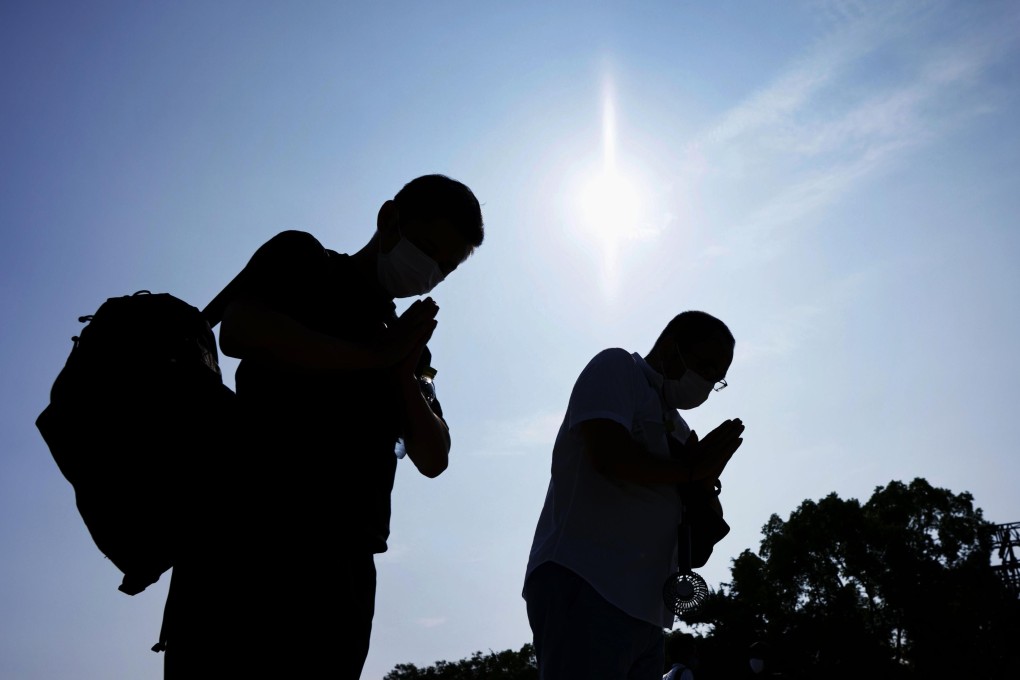Japan marks 75th anniversary of WWII Hiroshima atomic bomb attack
- Survivors and relatives will attend main event the city, but the public will be kept away due to the threat of coronavirus
- Hiroshima’s mayor and a representative of bereaved families will deliver remarks in front of a cenotaph inscribed with the names of victims on Thursday

Japan on Thursday marks 75 years since the world’s first atomic bomb attack, with the coronavirus pandemic forcing a scaling back of ceremonies to commemorate the victims.
Survivors, relatives and a handful of foreign dignitaries will attend this year’s main event in Hiroshima to pray for the victims and call for world peace.
But the general public will be kept away, with the ceremony instead broadcast online.
Other events, including a gathering to float lanterns along the Motoyasu River, have been cancelled as coronavirus cases spike in parts of Japan.
The annual commemoration is “Hiroshima’s mission of calling on people across the world to work towards peace”, mayor Kazumi Matsui told reporters.
Participants will offer a silent prayer at 8.15am (2315 GMT Wednesday), the exact time the first nuclear weapon deployed in wartime hit the city.